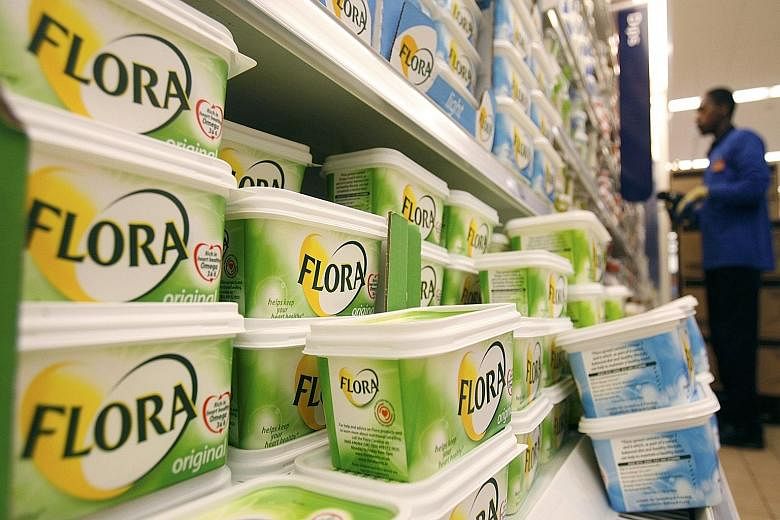LONDON • Unilever, whose soaps and detergents are used by two billion consumers daily, reported sales that beat estimates, amid higher prices for its goods in Latin America, and said it will consider the future of its troubled spreads unit if a new leader cannot turn it around.
Revenue rose 4.9 per cent, excluding acquisitions and currency shifts, in the three months through December, Unilever said yesterday.
Analysts had estimated growth of 4 per cent. The shares rose as much as 4 per cent to €38.99 (S$60.96) in Amsterdam trading.
"In markets showing anaemic growth, this is a pretty resilient performance," Mr Warren Ackerman, an analyst at Societe Generale, said in a note.
"The beat is down to pricing. Foods performance remains very disappointing, which is firmly down to spreads, with the rest of the division doing well," Mr Ackerman added.
Analysts have called for a divestment of Unilever's developed-market spreads business, which mostly makes margarine, and was split off into a standalone unit last year.
The company will consider all options for the unit if it shows no growth this year, chief executive officer Paul Polman said in a conference call.
Revenue at the division, whose brands include Flora and I Can't Believe It's Not Butter, continued to decline in the fourth quarter, prompting a change in management.
It will now be headed by Mr Nicolas Liabeuf, after former boss Sean Gogarty left. Mr Liabeuf was formerly Unilever's French marketing head.
The management change "will likely renew speculation about an exit from this business, which would be welcomed by the market", Mr Eddy Hargreaves, analyst at Canaccord Genuity, said in a note.
To buoy profitability, the company has acquired high-end brands, such as Grom gelato, and built a €400 million prestige personal-care division to offset pressure from bargain-hunting European consumers.
Unilever is also introducing zero-based budgeting - a business model where expenses must be justified from zero annually or quarterly - to cut costs by about €1 billion by 2018.
"We are preparing ourselves for tougher market conditions and high volatility in 2016, as world events in recent weeks have highlighted," Mr Polman said in the statement.
BLOOMBERG

